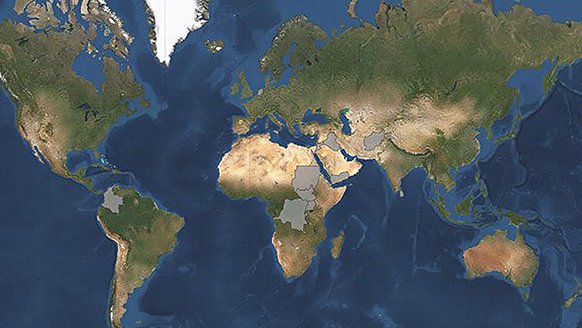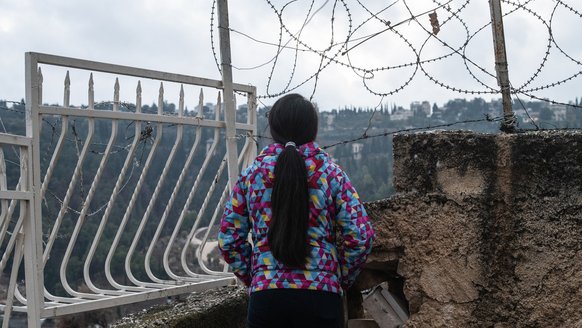Rami (10) is Growing Up Under the Gaza Blockade
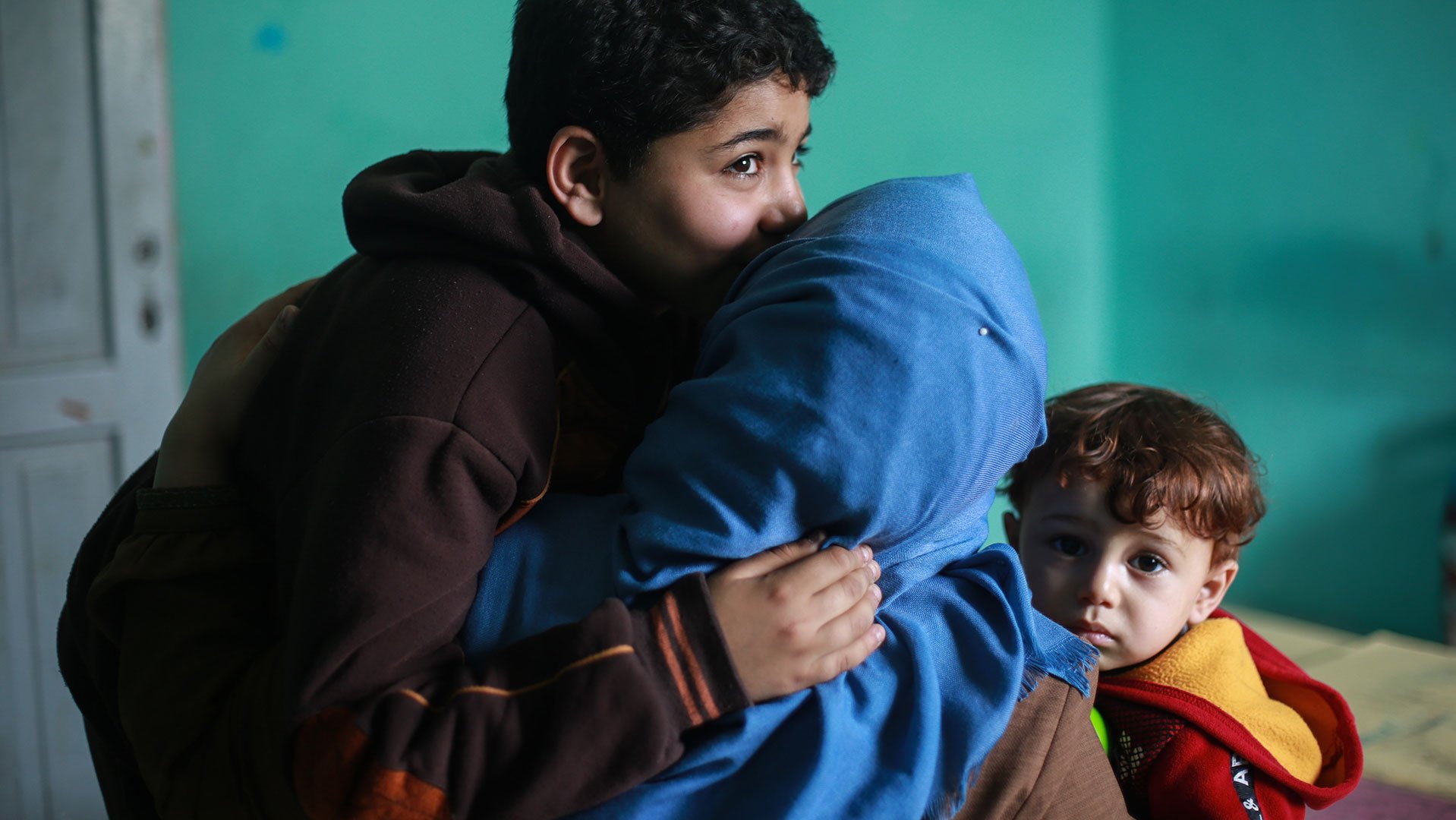
Rami with his mother and younger brother
Photo: War Child

Ten-year-old Rami knows nothing but life under occupation
Photo: War Child
A dark prediction
Gaza residents call their home the world’s largest open-air prison. Over 1.8 million people live here on just 365 square kilometres of land. The population of Gaza – two thirds of them younger than 25 – live in one of the most densely populated places on earth. The United Nations (UN) has warned that the region will become uninhabitable by 2020.
Four armed conflicts in ten years
Children and their parents in Gaza know nothing but life under blockade – unable to leave, even temporarily. A decade after Hamas seized the land-locked territory, inhabitants have lived through three major armed conflicts. And right now, are enduring a fourth. Since March 2018, 23,500 people have been injured; more than 5,500 of them shot by Israeli security forces. As a result of protests along the border, 4,250 children have been injured and 31 people have lost their lives.
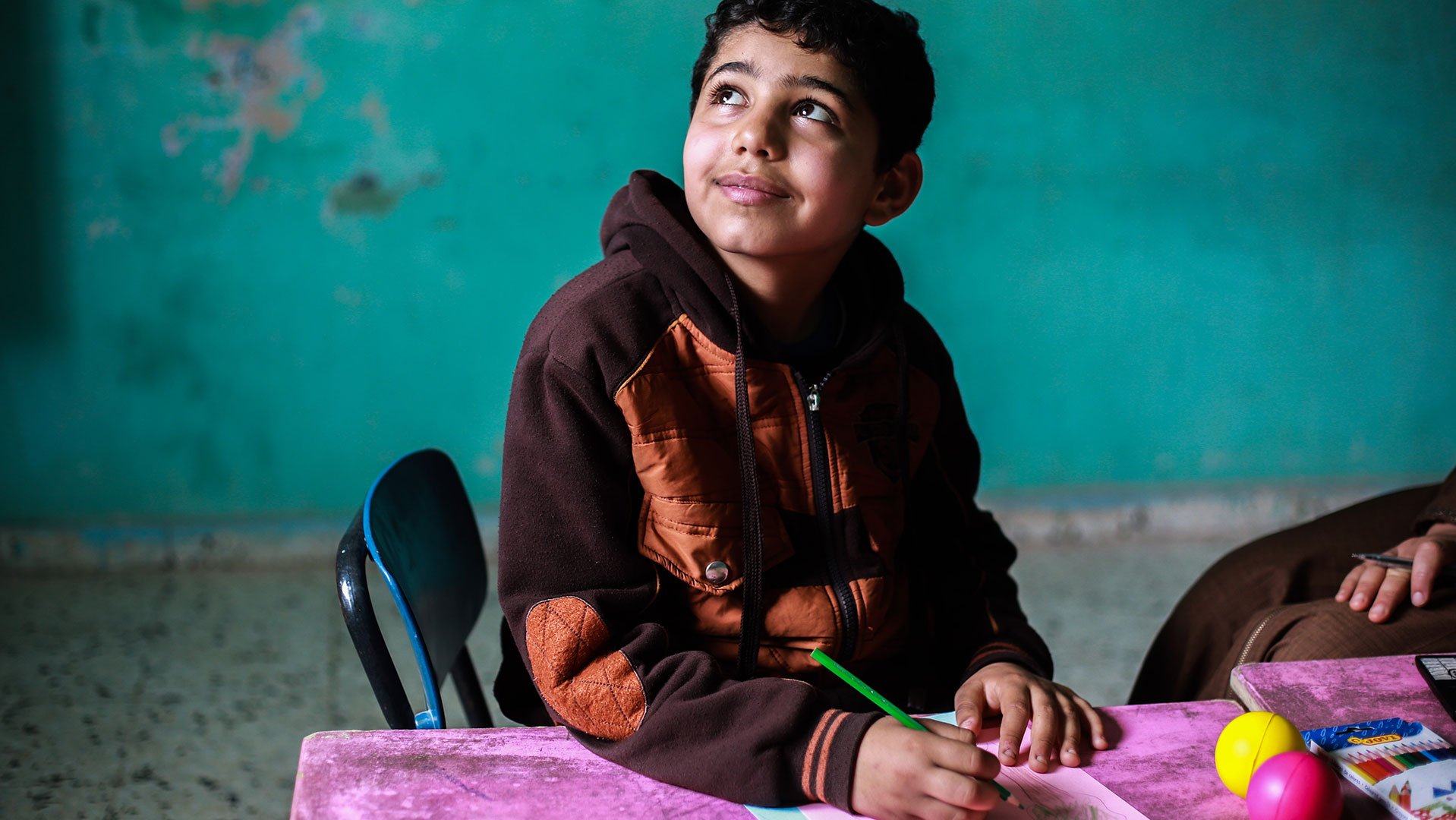
Most children in Gaza have no access to quality education
Photo: War Child
Dealing with stress, anxiety and depression
This year, the situation in Gaza has deteriorated to a critical state. Local health care and education systems are on the verge of collapse. And long-term exposure to violence continues to have a devastating impact on the mental health and psychosocial wellbeing of children and youth. Parents, carers and social workers struggle to cope with overwhelming levels of stress and resort to survival mode. They cannot give children the support that they need.
Research shows that the high-rate of violent events in Gaza has led to a wealth of psychosocial conditions including post-traumatic stress disorder, anxiety and depression. According to scientific studies, these symptoms are stronger in children than in adults. Half of the children in Gaza say they have no hope for the future.
Rami’s story
Rami is 10 years old. He and his three brothers have lived their entire life in the occupied Palestinian territory. His mother, Haifa, struggled to protect her children from the perpetual suffering and threat of violence. “The area where we live was very dangerous during the wars”, she says. “There were regular missile attacks.” The family had to flee their home several times to escape Israeli tanks and grenade attacks. “Years of fear meant we were unable to resume our old lives. Not just mentally, but also financially”, she adds, referring to the permanent siege and closure policy imposed on Gaza.
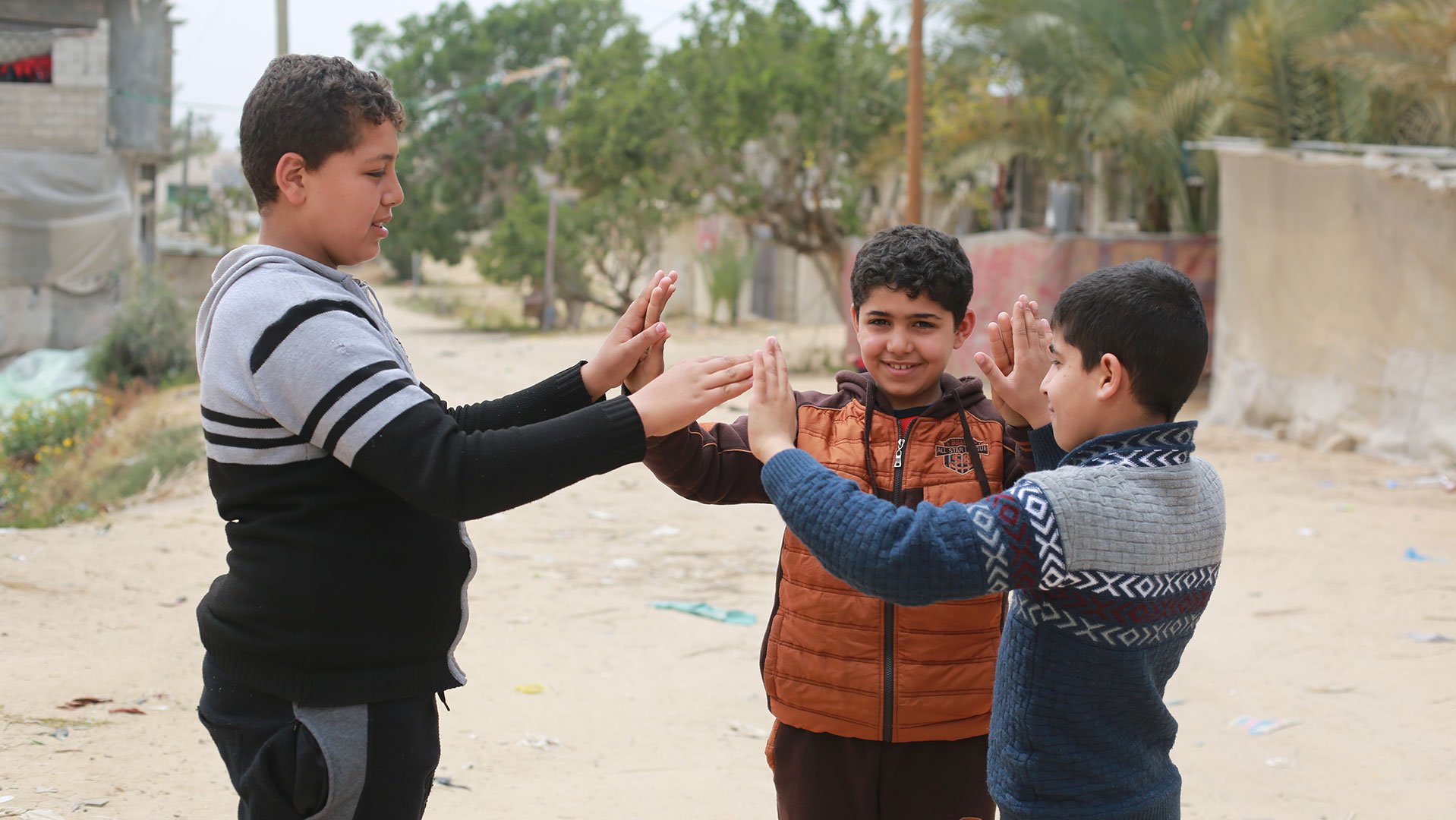
Playing under occupation
Photo: War Child
A family outlet
To learn how to deal with her experiences and, in turn, support her sons, Haifa took part in War Child’s Caregiver Support Intervention with Rami. A War Child Specialist in the field of Psychosocial Assistance in Gaza asked them about their time on the programme.
Haifa said: “I felt very comfortable with the group. I was able to tune out for a moment and felt supported. I continue to do the imagination and relaxation exercises to this day, which helps me stay positive.”
Before participating in our caregiving sessions, Haifa found it difficult to express her feelings; she didn’t want to burden the people around her. During the sessions, she slowly but surely learned to open up. This helped Haifa form a strong bond with her mother and lean on others for support. Haifa discovered that her mother could offer a real refuge for her.
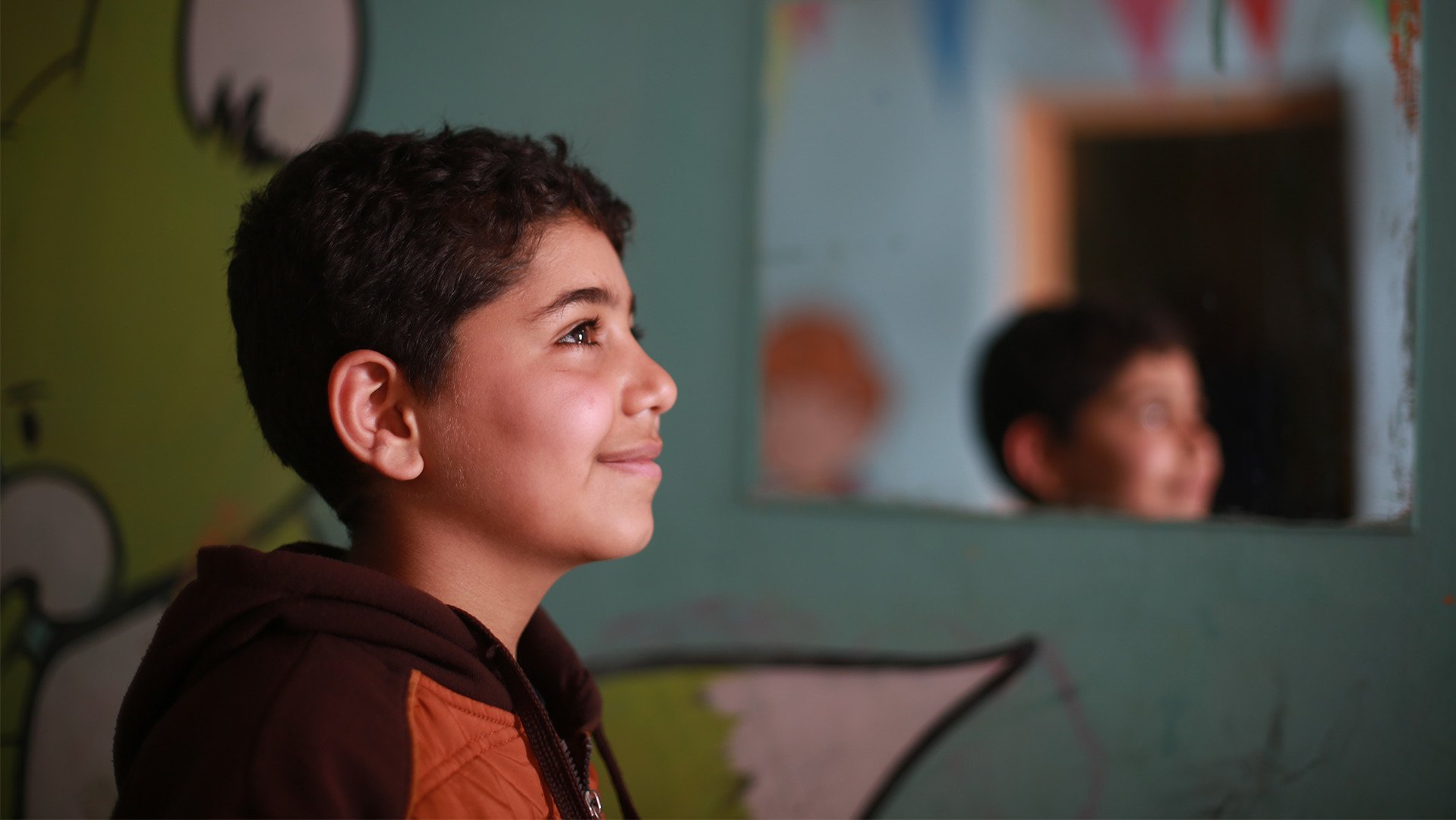
Rami's first dream is to become a surgeon so that he can help people.
Photo: War Child
Count to ten
Haifa has also learnt a lot about raising her children. Where in the past she sometimes lost her temper, she now counts to ten to keep calm. She even taught this method to her husband and always reminds him when he gets angry with the boys. Both parents have become good listeners and try to encourage their children as much as possible.
Rami sees a big difference in his mother. She no longer scolds him and his brothers, and instead plays games such as stone, paper, scissors. She also shares her relaxation exercises with them.
Rami adds: “I now find it easier to tell my mother about my feelings and problems.”
Daring to dream
Rami really enjoyed taking part in our programme in Gaza. “It helped me to make new friends. After a while, I felt less shy and these days I dare to feel more.” Now, he looks forward to the future and what he’d like to achieve in the years to come. “My first dream is to become a surgeon so that I can help people. Doctors are loving. My second dream is to start a family and have children of my own.”
*All names in this story have been changed to preserve the safety of the children who take part in our programmes.
